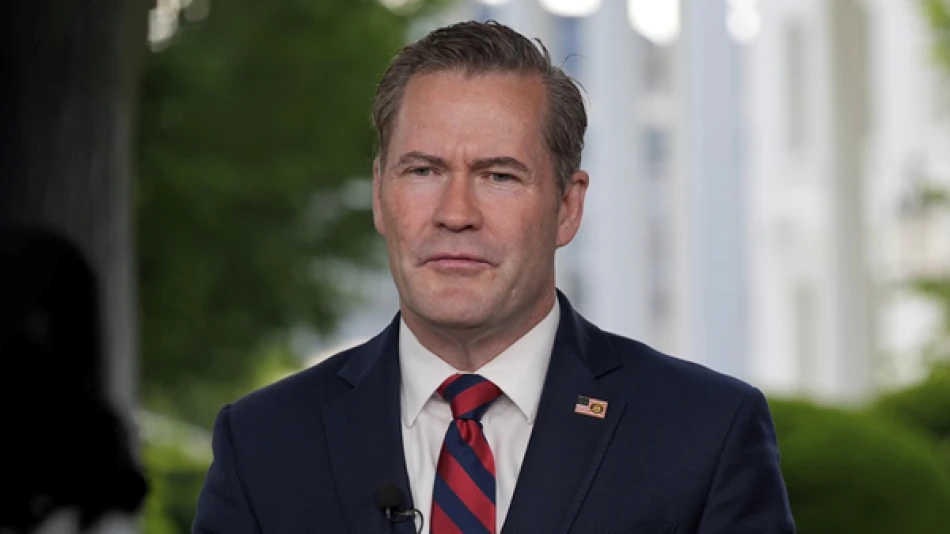
US Appoints Mike Waltz as New UN Ambassador, Bolstering Diplomatic Presence
Senate Confirms Mike Waltz as UN Ambassador, Filling Trump's Final Cabinet Gap After Months of Delays
The U.S. Senate has confirmed Mike Waltz as America's ambassador to the United Nations, completing President Donald Trump's cabinet lineup after a protracted confirmation process marked by procedural hurdles and a previous nominee withdrawal. The bipartisan vote ends months of uncertainty over who would represent American interests at the world body during a critical period of global tensions.
A Delayed Confirmation Process
Waltz's path to confirmation was anything but smooth. A procedural obstacle recently forced his nomination back to the Senate Foreign Relations Committee, requiring a fresh committee vote before advancing to the full Senate floor. This delay exemplifies the increasingly contentious nature of high-level diplomatic appointments, where even qualified candidates can face extended scrutiny.
The position had remained vacant for months after Trump withdrew a previous nominee, leaving the U.S. without permanent representation at the UN during crucial international negotiations on climate policy, Middle East tensions, and global economic coordination.
Waltz's Brief Tenure as National Security Advisor
Waltz brings a unique perspective to the UN role, having served as Trump's National Security Advisor for several weeks until May. This brief but intensive experience at the highest levels of foreign policy decision-making could prove valuable in navigating the complex diplomatic landscape at the United Nations.
His appointment signals Trump's preference for advisors who understand his foreign policy priorities firsthand, particularly the administration's "America First" approach to international organizations and multilateral agreements.
Timing and Global Implications
The confirmation comes at a pivotal moment for U.S.-UN relations. With the annual UN General Assembly meetings scheduled for next week in New York, it remains unclear whether Waltz will participate in these high-stakes diplomatic gatherings that typically set the international agenda for the coming year.
The timing underscores how domestic political processes can impact America's global diplomatic presence. Extended confirmation delays have become increasingly common, potentially weakening U.S. influence in international forums where consistent representation matters.
What This Means for U.S. Foreign Policy
Waltz's confirmation completes Trump's foreign policy team at a time when the administration faces multiple international challenges. His role will be crucial in advancing Trump's agenda at an institution the president has historically viewed with skepticism, particularly regarding issues like climate commitments and international trade regulations.
The bipartisan nature of his confirmation suggests that despite political divisions, senators recognize the importance of having experienced leadership in key diplomatic positions, especially as global conflicts continue to demand coordinated international responses.
Most Viewed News

 Layla Al Mansoori
Layla Al Mansoori






